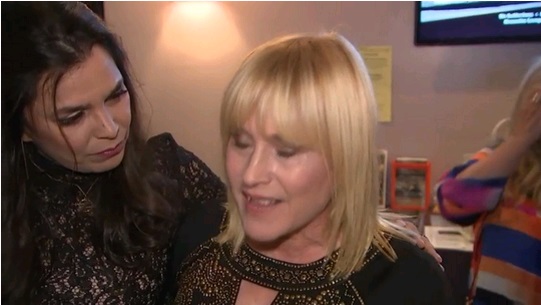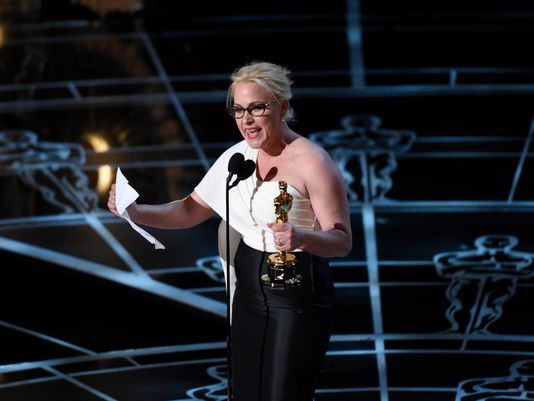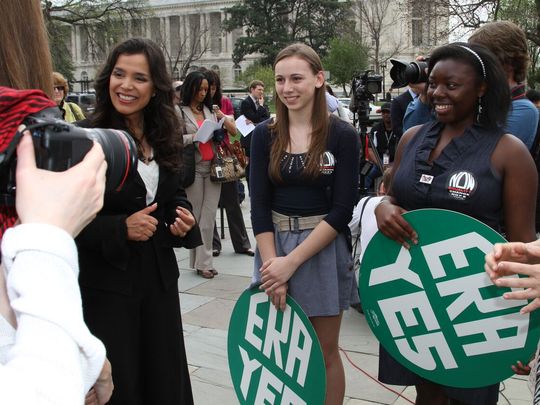

Since her impassioned onstage plea for equal rights and pay for women, fellow actresses such as Jennifer Lawrence, Meryl Streep and Viola Davis have spoken out against wage disparity. California passed a bill last fall requiring equal pay for "substantially similar" work, while Massachusetts has enacted legislation that bars employers from asking job candidates about previous salaries.
"I had a few lawmakers tell me they passed laws because of me and thanked me," says Arquette, 48. "I didn't really feel like I'd done anything. They'd really done the work and had been trying to pass these things for years. But when you get the conversation going, all of a sudden it becomes the right time to change something."
Arquette is an executive producer on a new documentary addressing the pay gap, Equal Means Equal (available Tuesday on iTunes, Amazon, Google Play, FandangoNOW and other digital platforms). The film is written and directed by her longtime friend Kamala Lopez, who explores topics such as pregnancy discrimination, female poverty, reproductive health care and sexual assault. She also lobbies for the Equal Rights Amendment to the U.S. Constitution, which states that civil rights cannot be denied based on gender.

Lopez started shooting Equal in 2009 out of sheer frustration with the state of women's issues in America. "I'd see these little girls and think, 'Boy, if they only knew they don't even have equal rights,' " Lopez says. Particularly in a presidential election year, "it's critical that people see this film, because I need them to understand the stakes and where their rights have been denied, abrogated and undermined."
Arquette served as both a sounding board and fundraiser throughout the six-year filmmaking process. She says she's supporting Hillary Clinton, who has "addressed a lot of equal-pay issues, and that's really important to have a candidate talking openly about that. She's a mom, a grandma and wasn't raised a billionaire, so she really does understand the situation of women and families."
Since Boyhood, Arquette has starred in CBS' short-lived CSI: Cyber and will next appear with Rainn Wilson in '80s comedy Permanent. She says that although she has always been pretty savvy about negotiating her salaries, the snowball effect of her speech helped open her eyes to how many women in front of and behind the camera are affected by the Hollywood pay gap.
Writing her speech the day of the Oscars, "I knew I wanted to acknowledge my mom and some of the economic choices she had to make because she was a woman," Arquette says. But "the strange thing is, I wasn't really thinking of our industry. It was around the time of the Sony hacks and it was very upsetting. I was shocked that Jennifer Lawrence was paid less (for American Hustle), because even on paper — the movies she had been in and what they'd grossed — it didn't make sense whatsoever. But I still really wasn't applying it to myself. It was just such a part of the norm and the fabric of our industry that I had never really thought of questioning it."
- Publish my comments...
- 0 Comments
